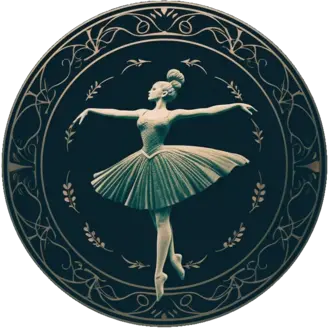Date Published: September 20, 2025
By Olga Levitsky
In late February 2022, the Royal Opera House announced that its much-anticipated Bolshoi Ballet season for summer could not proceed. Although planning was already well underway, the company stated that “under current circumstances” the season would be canceled. Across the UK, theatres in Wolverhampton, Edinburgh, and Bristol followed suit, canceling performances by Russian ballet companies amidst public concern and moral opposition to Russia’s invasion of Ukraine. [1]
The cultural withdrawal response came with breathtaking speed. Within days of Russia’s February 24 invasion, venues across Europe and North America began severing ties with Russian cultural institutions. The Royal Opera House’s cancellation was just the beginning. The Bristol Hippodrome, Edinburgh Playhouse, Wolverhampton Grand Theatre, and numerous other venues across the UK canceled tour performances from the Russian State Ballet of Siberia. Multiple Russian ballet companies, including the Bolshoi, had their UK performances called off amid the boycott of Russia’s cultural institutions following the invasion of Ukraine. In the United States, Peter Gelb, general manager of the Metropolitan Opera House, announced in a Facebook video that the Met would sever all ties with “Russian artists and institutions who are allied with Russian President Vladimir Putin,” declaring that “we can no longer engage with artists or institutions that support Putin or are supported by him.” The Metropolitan Opera stated that “as an international opera company, the Met can help ring the alarm and contribute to the fight against oppression.” [2]
Among other notable ballet stars affected by the politics of war was Svetlana Zakharova, a Ukrainian-born Russian prima ballerina, who has faced significant professional repercussions due to her public support for Russian President Vladimir Putin. This has led to cancellations and boycotts of her performances in various countries, such as her scheduled performance in Seoul, South Korea (March 2024) [3], and in Ljubljana, Slovenia (June 2024). [4] These actions reflect the broader cultural and political ramifications faced by artists whose affiliations and statements are perceived as supportive of controversial political regimes.
Among the most potent symbols of the cultural fallout was the cancellation of the Mariinsky Ballet’s tour at Washington DC’s Kennedy Center. This engagement, which had become a cornerstone event over nearly two decades, was pulled in spring 2022. In official statements, organizers cited a convergence of challenges—most prominently COVID-19 complications—that made the tour unfeasible. But many observers interpreted the decision through a political lens, recognizing it as part of the broader pattern of severing cultural ties with Russian institutions. [5]
These were not merely administrative decisions made in boardrooms. Real people found themselves caught in an artistic exodus that recalled the defections of the Cold War era. Prima ballerina Olga Smirnova made headlines when she left Moscow’s Bolshoi Ballet and Russia entirely in protest of Putin’s invasion. [6] Principal dancers Jacopo Tissi and Xander Parish faced agonizing decisions to abandon careers at the Bolshoi and Mariinsky, respectively. Tissi, an Italian dancer who had just been promoted to principal at the Bolshoi only months earlier, wrote poignantly on Instagram about his inability to continue his career in Moscow: “I am shocked by this situation that has come upon us from one day to the next, and quite honestly, I find myself unable to continue with my career in Moscow, for the time being.” [7]
The toll reached beyond individual career choices. Alexei Ratmansky—widely regarded as one of the foremost ballet choreographers of our time and a former artistic director of the Bolshoi—found that his name had been quietly erased from the repertoires of both the Bolshoi and Mariinsky companies. “It hurts,” he admitted in an email to The Washington Post, “but it didn’t come as a surprise.” [8] The Russian companies continued staging his ballets but stripped his name from them—a stark illustration of how political forces were actively reshaping the record of artistic history. As a result, Ratmansky was also forced to reconsider fundamental questions of his cultural and national identity. Although widely identified as a Russian choreographer throughout his career, he recently told The Washington Post that “since the war started, I am absolutely Ukrainian with all my soul, because that is where my heart is.” [9] His transformation reflects broader questions about how cultural identity intersects with political allegiance, and whether artists can or should be expected to transcend their national origins.
The debate reached a particularly contentious moment in December 2022, when Ukraine’s Culture Minister, Oleksandr Tkachenko, issued a striking appeal that made global headlines and split opinion within the ballet community. In an article for The Guardian, Tkachenko argued that Russian President Vladimir Putin treats Russian culture as “a tool and even a weapon” to undermine liberal values and advance his political aims. He urged Western nations to enact a temporary pause on performances of Russian composers—Tchaikovsky among them—until the war in Ukraine came to an end. “This isn’t about erasing Tchaikovsky,” he wrote, “but about halting his works until Russia stops its bloody invasion.” [10] His call was both specific and symbolic: Western allies should temporarily boycott Russian composers, including Tchaikovsky, until Russia ceased its invasion. [11]
Tkachenko’s appeal came at a particularly sensitive moment, coinciding with the start of the lucrative holiday season when ballet companies worldwide stage their most profitable productions. The Nutcracker alone accounts for roughly 45 percent of the New York City Ballet’s annual ticket revenue during its five-week run, which meant the Ukrainian minister’s proposal posed not only a cultural stance but also a financial risk for the industry. Most companies declined to comply. The English National Ballet, for instance, affirmed that it “stands in solidarity with all those affected by Russia’s invasion” but confirmed that its Nutcracker performances would continue as scheduled—a response that echoed the broader view within the ballet world that historical works should remain distinct from present-day politics. [12] This reflected widespread sentiment in the ballet community that the works of historical composers should be separated from contemporary politics.
However, the reality was more complicated than a straightforward defense of artistic heritage. Vladimir Urin, who has led the Bolshoi Ballet since his appointment by Putin’s government in 2013, and the Russian State Ballet, which operates under state sponsorship, illustrate how closely Russian cultural institutions are tied to political authority. This connection became visible beyond Russia’s borders as well. When demonstrators gathered outside the Joffrey Ballet’s staging of Anna Karenina in Chicago [13], they showed that even works drawn from Russian literature could spark political protest. The longstanding boundary between art and politics had become impossible to overlook.
Critics of the cultural embargo argued that it represented a dangerous precedent that conflated artistic heritage with contemporary political positions. Kevin Platt, a professor of Russian Studies at the University of Pennsylvania, wrote that “those who react to the war in Ukraine by aggressively or indiscriminately canceling or restricting artists and artistic works simply for being Russian are reflecting the same kind of nationalist thinking driving the Russian invasion in the first place.” [14] The specter of McCarthyism haunted these debates, with some artists and academics warning against the dangerous precedent of judging art by its creators’ national origins.
The boycott has inflicted real damage on Russian cultural soft power—that ability to seduce rather than coerce, to strengthen a nation’s image abroad and enhance cultural and diplomatic relations. Russian ballet had survived two world wars, Joseph Stalin’s terror and Holodomor, Cold War boycotts, and the fall of the Soviet Union. It had served as a visiting card for Russia for centuries, helping to soften the hearts of political adversaries. [15] Now, for the first time in generations, that soft power faced a crisis that could take years to recover from, if recovery is even possible.
Makhar Vaziev, the Bolshoi’s artistic director, spoke in Beijing during the company’s first international tour since the pandemic, claiming that the troupe was “not suffering” despite being shut out of Western stages. “I have no doubt that one day everything will go back to how it should be because culture is a wave that is very hard to suppress,” he said. [16] Yet the very fact that their return to international touring began in China—rather than in traditional artistic centers like London, Paris, or New York—demonstrated how the landscape of cultural diplomacy has shifted.
Meanwhile, the boycott has created unexpected opportunities for other voices. Companies like the Kyiv English Ballet have explicitly rejected Russian repertoire in favor of works that reflect Ukrainian cultural identity [17], representing a new generation of artistic institutions defining themselves in opposition to Russian cultural hegemony. Ukrainian musicians brought “Shchedryk”—the original version of “Carol of the Bells”—to Carnegie Hall exactly a century after its North American debut [18], a poignant reminder of Ukraine’s distinct cultural contributions that had long been overshadowed by Russian works.
The damage to Russian cultural institutions extends beyond international boycotts. Russia’s Bolshoi Theater permanently dropped a ballet about dance legend Rudolf Nureyev following the toughening of “gay propaganda” legislation, showing how domestic politics within Russia are simultaneously constraining artistic expression. [19]
As the war in Ukraine continues, the future of Russian ballet on international stages remains deeply uncertain. The protests against Russian choreography in Europe and North America mark a fundamental shift in how cultural institutions navigate the intersection of art and geopolitics. The politics of ballet, once confined to subtle cultural diplomacy, have become explicit and unavoidable. Artists, audiences, and institutions now confront uncomfortable questions about the role of culture in both soft power and resistance—questions that extend far beyond any single performance. The stage has become another front in a larger battle over values, identity, and the very meaning of cultural expression in an interconnected but fractured world.
Sources cited:
- https://www.itv.com/news/london/2022-02-25/royal-opera-house-cancels-ballet-london-tour
- https://www.classicfm.com/music-news/russian-ballet-music-cancelled-ukraine-support
- https://www.whatsonstage.com/news/all-russian-state-ballet-uk-tour-performances-cancelled_56013
- https://koreajoongangdaily.joins.com/news/2024-03-15/national/socialAffairs/Production-company-cancels-Russian-ballerina-performance/2003246
- https://www.rferl.org/a/ballet-performance-cancelled-slovenia-ukraine/32989605.html
- https://www.kennedy-center.org/news-room/press-release-landing-page/kennedy-center-engagement-of–mariinsky-ballet–april-26may-1-2022-canceled/
- https://www.npr.org/2022/03/17/1087316933/prima-ballerina-olga-smirnova-leaves-bolshoi-ballet-in-protest-of-russian-invasi
- https://ktwb.com/2022/03/07/italian-dancer-quits-bolshoi-ballet-over-war-in-ukraine/?utm_source=chatgpt.com
- https://www.washingtonpost.com/theater-dance/2022/10/21/bolshoi-cancels-alexei-ratmansky/
- https://www.theguardian.com/stage/2025/jun/09/kyiv-english-ballet-la-fille-mal-garde-russian-repertoire-boycott
- https://www.npr.org/2022/12/09/1141589248/ukraine-culture-boycott-nutcracker-tchaikovsky
- https://www.smithsonianmag.com/smart-news/ukraine-calls-for-boycott-of-the-nutcracker-and-other-russian-art-and-culture-180981286/
- https://www.axios.com/local/chicago/2023/02/17/joffrey-ballet-anna-karenina-protests
- https://www.fairobserver.com/culture/franthiesco-ballerini-russia-soft-power-ballet-bolshoi-boycott-news-16221/
- https://www.npr.org/2022/12/09/1141589248/ukraine-culture-boycott-nutcracker-tchaikovsky
- https://www.fairobserver.com/culture/franthiesco-ballerini-russia-soft-power-ballet-bolshoi-boycott-news-16221/
- https://www.reuters.com/lifestyle/russias-bolshoi-performing-china-vows-return-west-2023-07-26/
- https://www.theguardian.com/stage/2025/jun/09/kyiv-english-ballet-la-fille-mal-garde-russian-repertoire-boycott
- https://www.npr.org/2022/12/09/1141589248/ukraine-culture-boycott-nutcracker-tchaikovsky
- https://www.themoscowtimes.com/2023/04/20/russias-bolshoi-drops-nureyev-ballet-over-lgbtq-law-a80885
If you enjoyed reading this article, you may explore more insights and resources on ballet training, ballet news, and ballet history on our blog.







